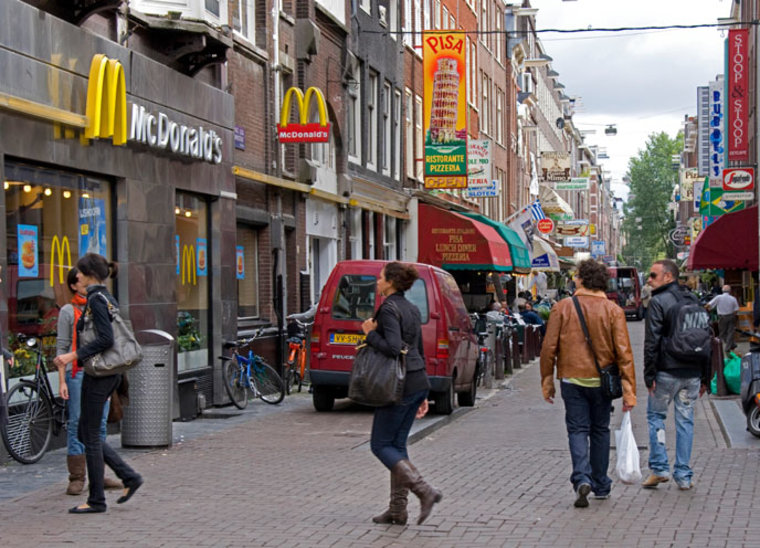Dublin, Ireland, is home to Trinity College, the Guinness Storehouse and St. Stephens Green. Here, you'll also find the world's most expensive fast food. In U.S. dollars, a hamburger meal at a medium-priced establishment, as defined by consulting firm Mercer, costs a whopping $9.16.
That figure — the only to exceed $8.00 on a list of 20 geographically diverse cities selected for different cost comparisons — is $3.00 greater than the price of a hamburger meal in New York, where it's $5.99. But travelers in Europe will not find significant relief in many other cities on the continent, where the price of a fast food meal hovers within the $7.00 range: In Amsterdam, the Netherlands, you'll pay $7.88; in Paris $7.43, and in Athens, Greece, $6.66. For less pricey eats, grab a hamburger in Prague, Czech Republic, for $4.91; in Warsaw, Poland, for $3.86, or in Johannesburg, South Africa, which sells the cheapest burgers on the list at $2.50.
Behind the numbers
In devising a comparative study of the cost of a fast food hamburger meal across different cities, included in this year's Worldwide Cost of Living Survey 2009, Mercer analysts collected data from venues most frequented by expatriates in a given city. Expenses incurred from consuming food outside of the home are assigned a weight of 9.5 percent in the cost of living index.
Conducted twice a year by field researchers who report prices at the relevant retail outlets, Mercer's annual cost of living survey assesses differences in expenses and housing in 143 cities across six continents. The study compares the costs, in U.S. dollars, of more than 200 items in each location, including housing, transportation, household goods, food and clothing. The analysis of this basket of goods and services — indicative of executive spending patterns — is designed to yield data that would help multinational companies and governmental organizations determine appropriate compensation allowances for employees sent out of the country.
"As a direct impact of the economic downturn over the last year, we have observed significant fluctuations in most of the world's currencies, which have had a profound impact on this year's ranking," said Nathalie Constantin-Métral, a senior researcher at Mercer's office in Geneva, Switzerland. The period between March 2008 and March 2009 displayed a greater degree of currency fluctuation against U.S. dollars than in the previous year, Constantin-Métral said.
The ranking of the most expensive cities in the world has shifted to reflect these fluctuations. Moscow this year fell to No. 3 from No. 1 on the list; Tokyo — which had come in second last year — took its place as the most expensive city for expatriates to live. Another Japanese city rose to the top: Osaka moved up nine spots to claim the title of second most expensive city.
If that's not enough to steer the cost-conscious from Japan, here's more. Tokyo, for example, may not have the most expensive fast food hamburger meals at $7.04, but the city does call for the highest price when it comes to 35.3 oz. of spaghetti pasta: $9.06. Tokyo also has the second-highest cost for a liter of whole milk, at $2.58. Dublin, home to the most expensive hamburger meal, offers spaghetti at a lower cost of $3.56.
